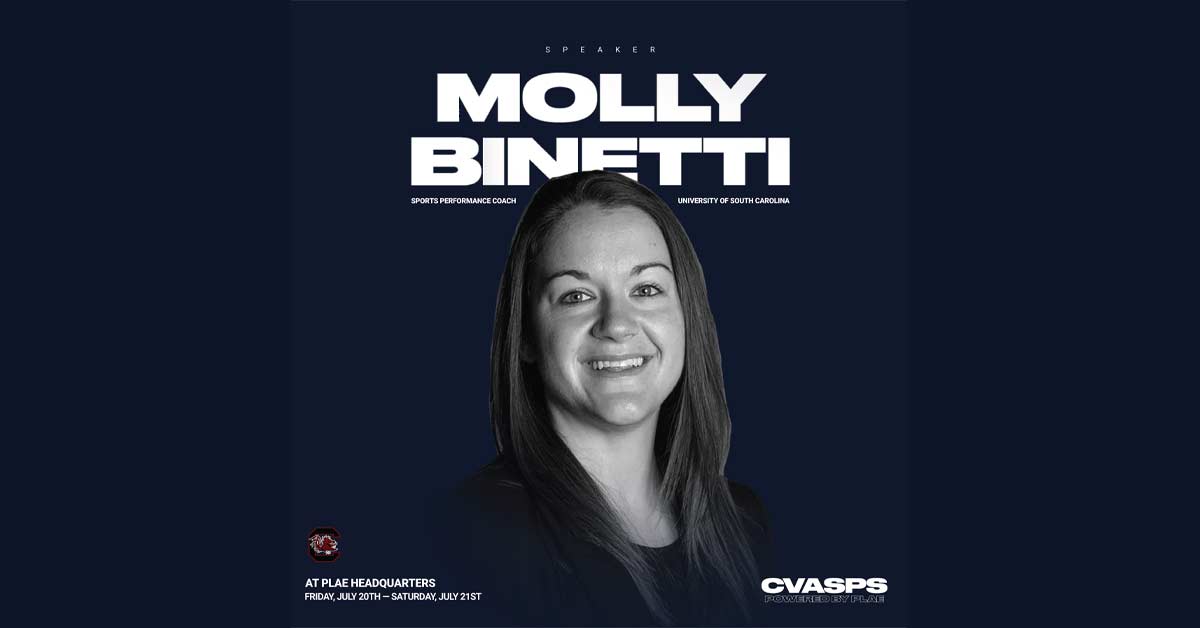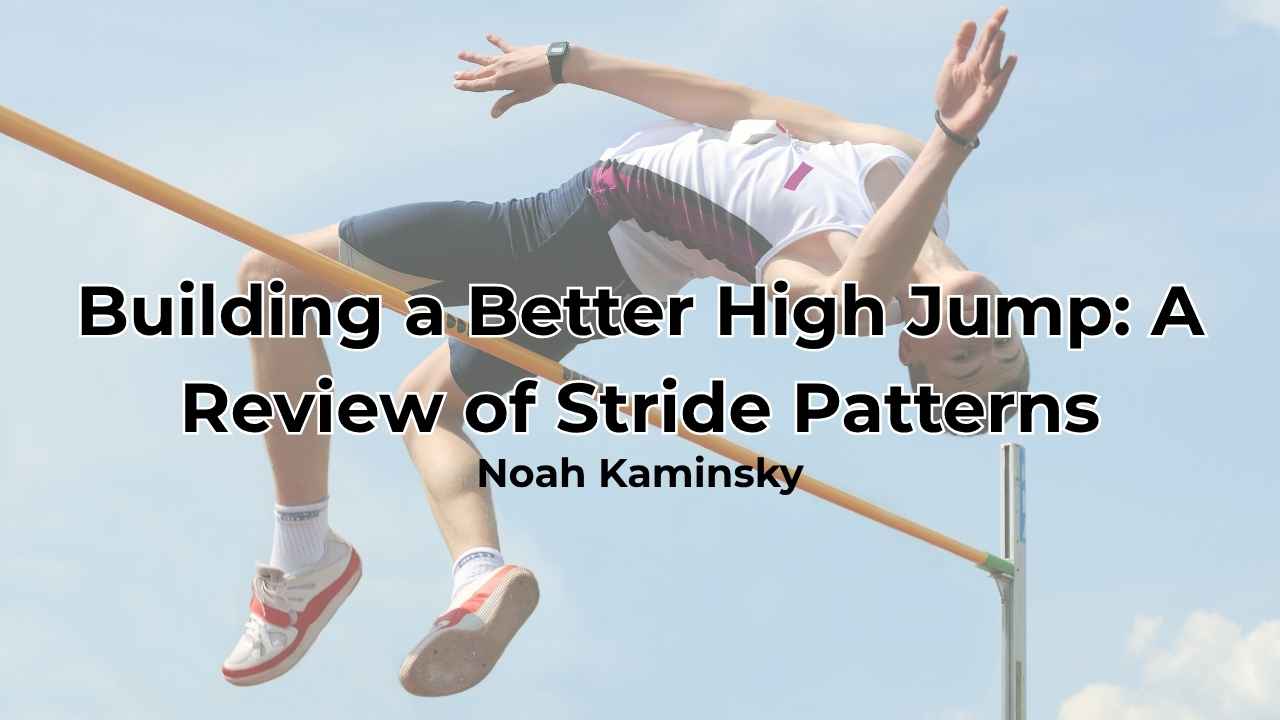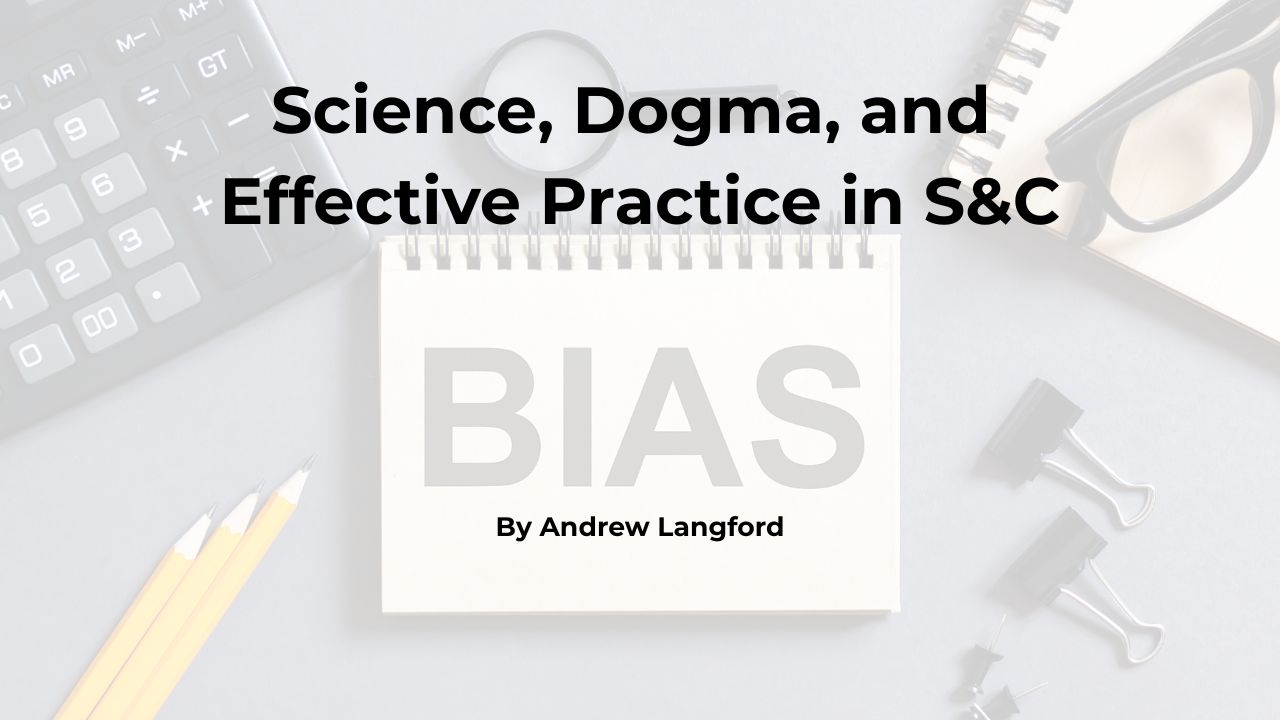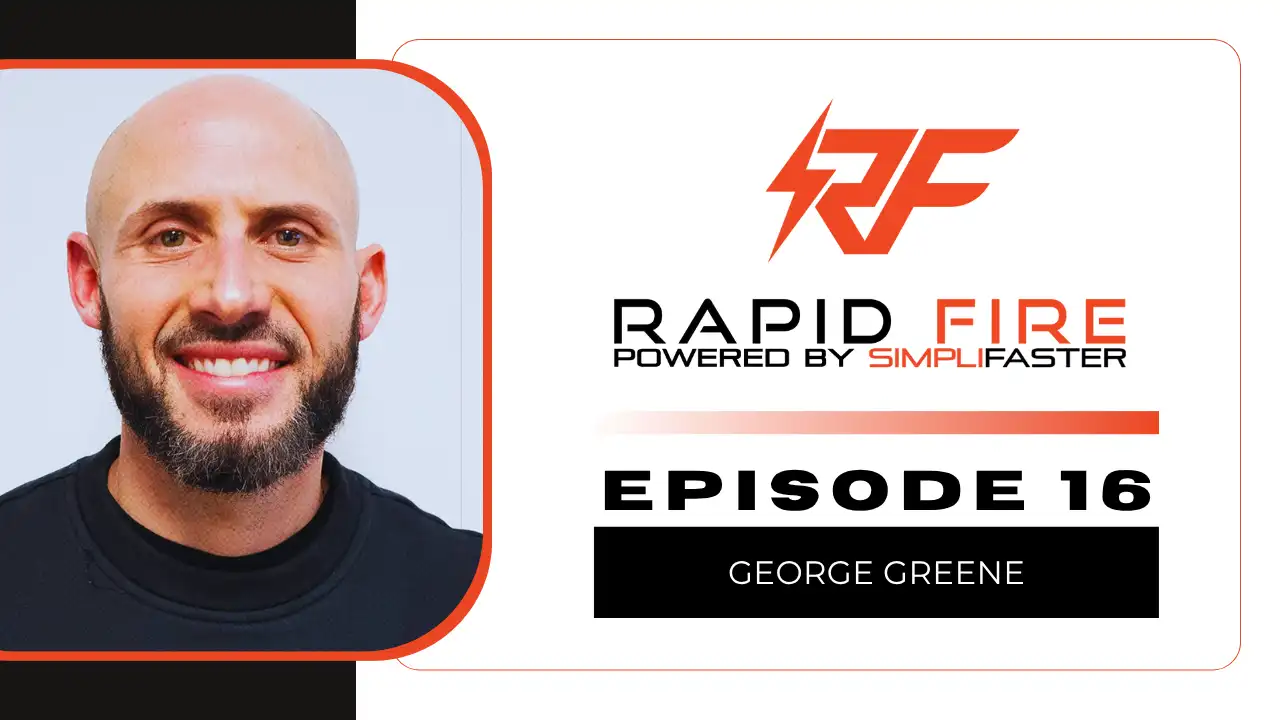My friend Molly Binetti gave one of the favorite talks among all those in attendance at Union Fitness last spring, and I couldn’t be happier to have her back on the docket this July for The 2023 Seminar. She is a driven coach, one who strives to always be better for her athletes and help the profession by sharing and educating coaches. But above and beyond all the great things, if I were to summarize her in one word, it would be “champion.”
CVASPS: What are a handful of the mistakes you routinely see being made by strength and conditioning coaches in the United States and throughout the world, and what specifically do you feel they should do differently to correct these issues?
Molly Binetti: When it comes to the mistakes I see made by strength conditioning coaches around the globe, it really boils down to two things. The first is that we spend too much of our time in a really narrow scope of focus when it comes to our learning and continuing education. What I mean by that is that all of our focus is on the physical and physiological aspects of training—training adaptations, technology, biomechanics, and all of the things that are the foundation of what we do and undoubtedly the cornerstone of doing our jobs at a high level. We don’t spend enough time on lateral thinking and pulling concepts from other professions, such as communication, leadership, business, financial aspects, negotiation, conflict resolution, psychology, and human behavior.
Coaches don’t spend enough time on lateral thinking and pulling concepts from other professions, such as communication, leadership, business, negotiation, and human behavior, says @MollyBinetti. Share on XAll these aspects contribute to us being able to do our roles and navigate our careers at the highest level. It’s really nobody’s fault because none of our curriculum in school focuses on these things. Instead, it tends to be about anatomy, physiology, biomechanics—all of those things.
They’re not included in internships because internships are focused on, obviously again, learning these concepts of training: being able to put a program and a plan together for an entire year. We learn how to coach movements and how to run a session and things of that nature, but there’s really no general education and formal training in these areas, especially when it comes to communication, human psychology, and the ability to understand human behavior, which is at the heart of what we do.
We are teachers. We’re trying to get our athletes to learn how to train. We’re getting them to develop. We’re trying to change the behaviors that may be in their way, inhibiting their performance and growth. A solution would be to include more of those concepts, whether in a curriculum, part of our internship experiences, or having more formal learning opportunities along these lines.
There are sources out there now. “Art of Coaching” is one. There are a lot of coaches providing communication training, presentation training, etc. We need to have more of those resources as part of formal education, whether in school or within internship opportunities, and have more exposure to these areas to understand what aspects of our job are essential.
The second mistake I see us, as strength coaches, making is that we often put our agendas, and not our athlete’s agenda, at the forefront. We don’t keep the main thing the main thing. That main thing is our athletes, their journey, their goals, and what they need to do to perform at the highest level within their sport. Too often, we’re too married to specific training methods and beliefs, for instance, a particular exercise or approach to how we train. This can come at the expense of the athletes and what they need. We often come from a place of control and structure—almost a dictatorship—instead of inviting our athletes to be a part of their own learning and development process.
The most important thing is giving them a say in what they do and finding solutions that work for them individually, even though those solutions may be different than what you truly believe in. We need to release control, let go of our ego, and find solutions for each individual athlete to help them get where they want to go and equip them with skills that will transcend their careers as a basketball player, a soccer player, a football player—whatever that might be.
Sometimes we are blinded by what we believe needs to be included in an athlete’s program, but we need to be open to changing things when it comes to doing what’s best for them, says @MollyBinetti. Share on XSometimes we are blinded by what we believe needs to be included in their program or what we believe is the right or wrong way to train. We need to be open to changing things when it comes to doing what’s best for our athletes and not what’s best for us and satisfying our ego. As far as a solution to correct this, I think it just really takes an ability to be open-minded and self-aware and a willingness to listen and ask better questions to understand better what exactly our athletes need from us.
CVASPS: What advice would you give a coach to improve their knowledge as a process of continuing education? By this, I mean, can you point our readers in a few concrete directions to find the scientific and practical information to improve the methods used to strengthen performance?
Molly Binetti: The advice I would give to a coach looking to improve their knowledge in a particular area of training or coaching really differs depending on whether they’re a novice or a more experienced coach. As a young coach, it’s really important to spend as much time around your mentors as you can, whether that’s within your internship or, if you’re a full-time coach already, with your director or whoever is above you or maybe has held a position similar to yours for a long time.
I think it’s also really important to get exposure to as many in-person or virtual clinics and conferences as possible, whether that’s a state or national conference. Being able to meet other people in your field is important, but so is learning and listening to a wide variety of topics.
As you become a little bit clearer on the areas you need to learn about and you kind of create a niche for yourself, my advice is to seek out people who are already in your space doing things at a high level and having a lot of success. Put yourself in the uncomfortable position of asking them for help, asking them questions, and learning from them in any way you can. Because I think the best way to blend the technical and scientific with the practical is to learn from people who are already doing that at a really high level.
There are lots of great resources out there online through articles and blogs, podcasts, and virtual presentations. The NSCA and CSCCA put out content, obviously CVASPS, SimpliFaster, Pacey, and Sports Smith. Many platforms provide continuing education opportunities. So, my advice is also to get specific about what you want to learn, find out who is doing it really well, and do your research on what resources are out there, but it ultimately comes down to being willing to get uncomfortable. Make connections with somebody you don’t know or figure out how to make connections by utilizing the people you know already.
CVASPS: For readers unfamiliar with your history, can you provide some background on your niche in the world of athletics, the educational/career path you took en route to your present role, and any notable publications, courses, or products you have available that you’d like to direct readers toward to dive deeper?
Molly Binetti: I am the Director of Women’s Basketball Performance at the University of South Carolina. This is my fifth year in that role and 10th year overall as a full-time Division I strength conditioning coach. I did my undergrad and got my bachelor’s degree at Marquette University, where I started my journey as a performance professional. I was lucky enough to get introduced to Todd Smith, the head strength coach at Marquette, and interview him for one of my classes. He opened the doors to me and allowed me to come in and observe and volunteer my time.
I had no real idea what this world looked like or anything related to the field, but I just kept showing up, and that opportunity turned into an internship throughout my entire undergraduate career. I went on to internships at EXOS, which was Athletes Performance at the time. I ran a high school program. I got my master’s degree at the University of Minnesota, where I was also a graduate intern and worked with a multitude of teams during that time. And then, I was lucky enough to get my first full-time position at Purdue University in 2013 at 23 years old. I spent one year there and moved on to the University of Louisville, where I spent four years.
So overall, this is my 10th year full-time. My current niche is in the world of basketball development, but I really take pride in my approach to holistic athlete development. I would also say my niche is coaching development and education. For notable publications, I have two articles, both in the Journal of Strength and Conditioning Research, regarding elite women’s basketball players: “Mechanical Determinants of Faster Change of Direction and Agility Performance in Female Basketball Athletes” and “Physical Determinants of Division 1 Collegiate Basketball, Women’s National Basketball League, and Women’s National Basketball Association Athletes: With Reference to Lower-Body Sidedness.”
CVASPS: Can you provide a sneak peek of the topic you will be covering at The Seminar, as well as a few useful takeaways on the presentation for those who may not be able to attend?
Molly Binetti: At The 2023 Seminar, I will be presenting on “developing athletes outside the lines,” which will be a detailed look into a holistic, athlete-centric approach to development in a team sport setting. When I say “development,” that is an all-encompassing physical, mental, and emotional approach to training. The emphasis will be on environmental design and utilizing autonomy, creativity, exploration, and variability. It will be on partnering with the athlete to create a learning environment that equips them with skills, not just to take ownership of their training, but to grow and mature throughout an entire season and an entire four-year career.
There will be specific examples of:
- Developing athleticism.
- What individualization looks like within this structure and system.
- What team sports periodization really looks like on a day-to-day basis.
- What choice and autonomy can result from a development standpoint.
So, listeners and those in attendance can expect to be challenged to think outside the box in terms of their own coaching style and structure within their environment. They’ll also learn easy ways to include the athlete in the process and, in turn, create a more engaged, more responsible, more intentional training environment and athlete.
@CVASPS The Seminar attendees will learn easy ways to include the athlete in the training process and, in turn, create a more engaged, responsible, intentional athlete, says @MollyBinetti. Share on XCVASPS: I hope you enjoyed this Q&A with Molly and understand why I’m so excited to have her as part of this summer’s event. As a champion in every sense of the word, Molly’s continuing pursuit of ways to be better for her athletes and find ways to give back to our vocation are why I had to have her back on the docket for The 2023 Seminar at PLAE HQ in Canton, Georgia, on July 21 and 22, for what is going to be an absolutely fantastic event. For more info, tap the link, and be on the lookout for the next installment of our presenter Q&As here on SimpliFaster.
Since you’re here…
…we have a small favor to ask. More people are reading SimpliFaster than ever, and each week we bring you compelling content from coaches, sport scientists, and physiotherapists who are devoted to building better athletes. Please take a moment to share the articles on social media, engage the authors with questions and comments below, and link to articles when appropriate if you have a blog or participate on forums of related topics. — SF





